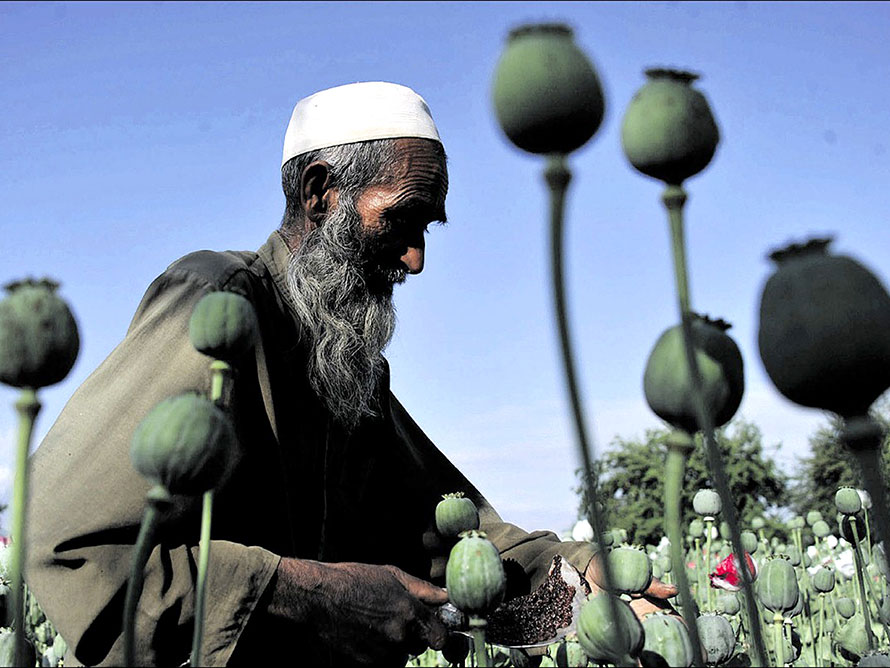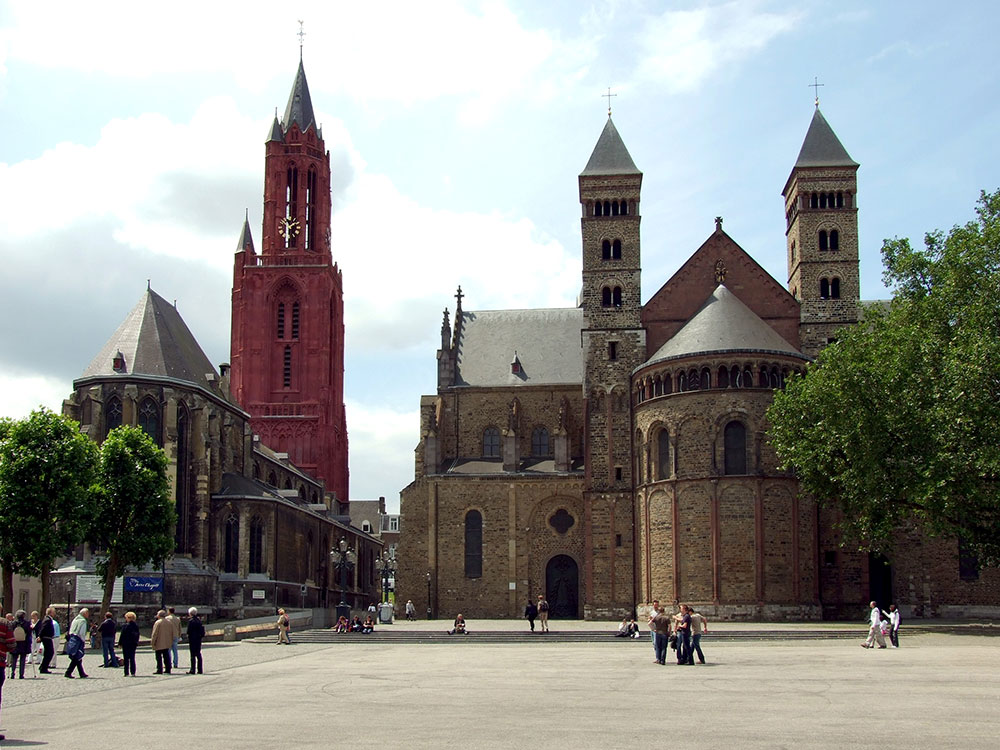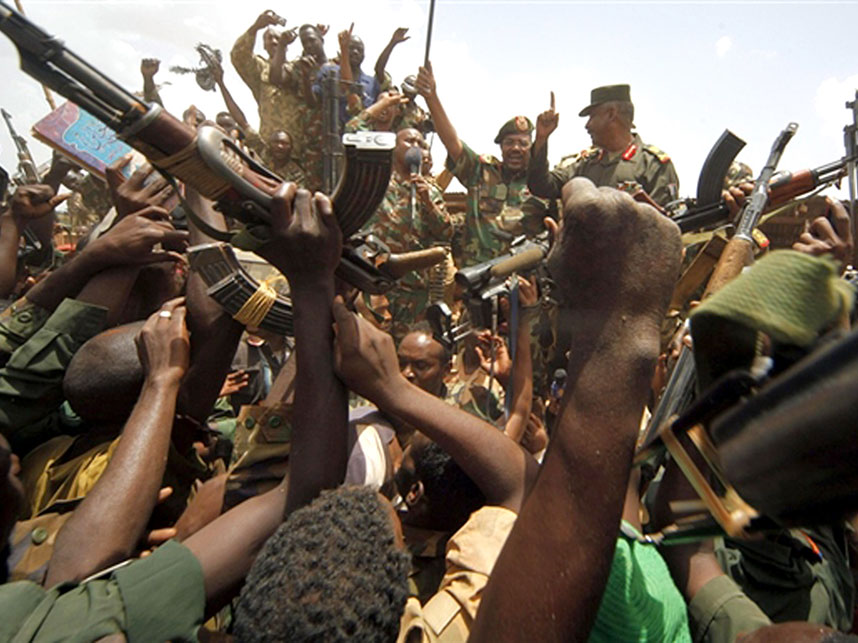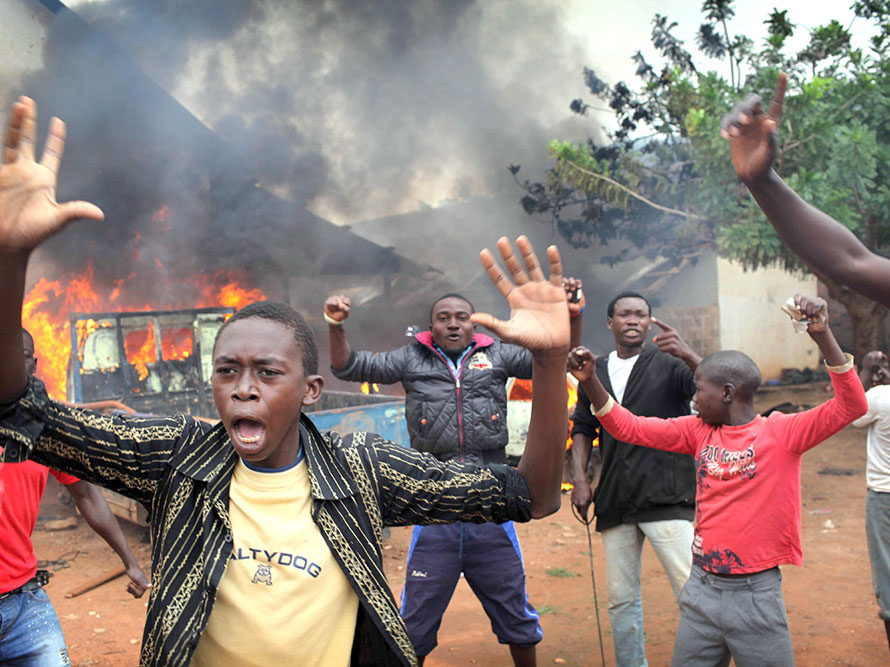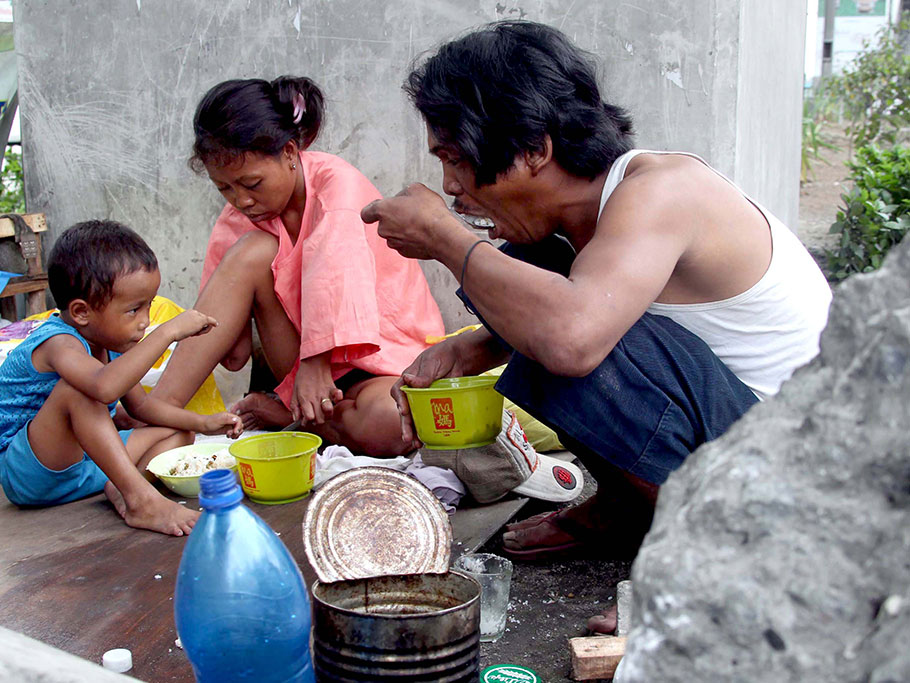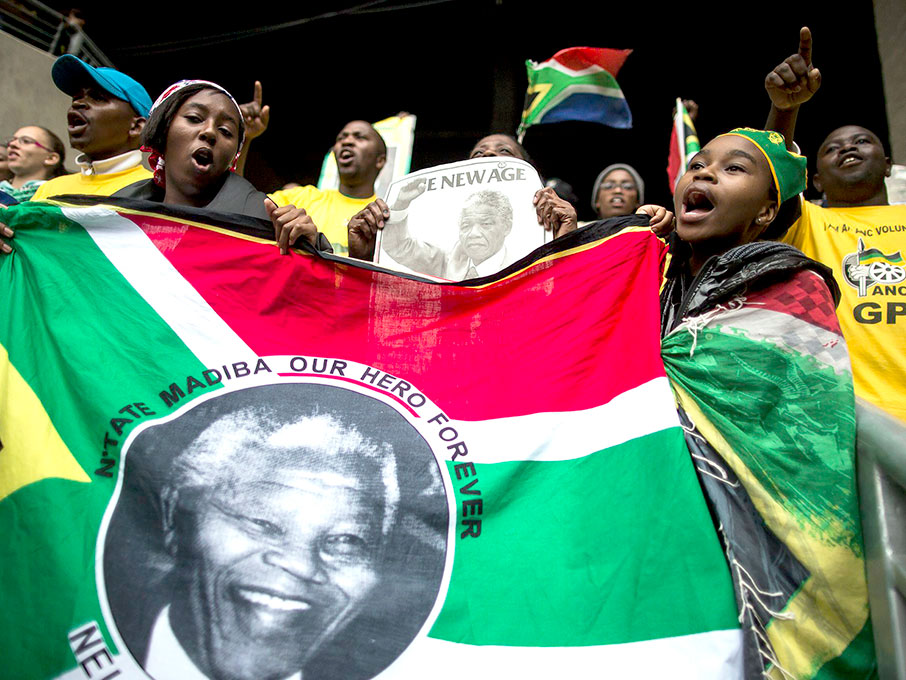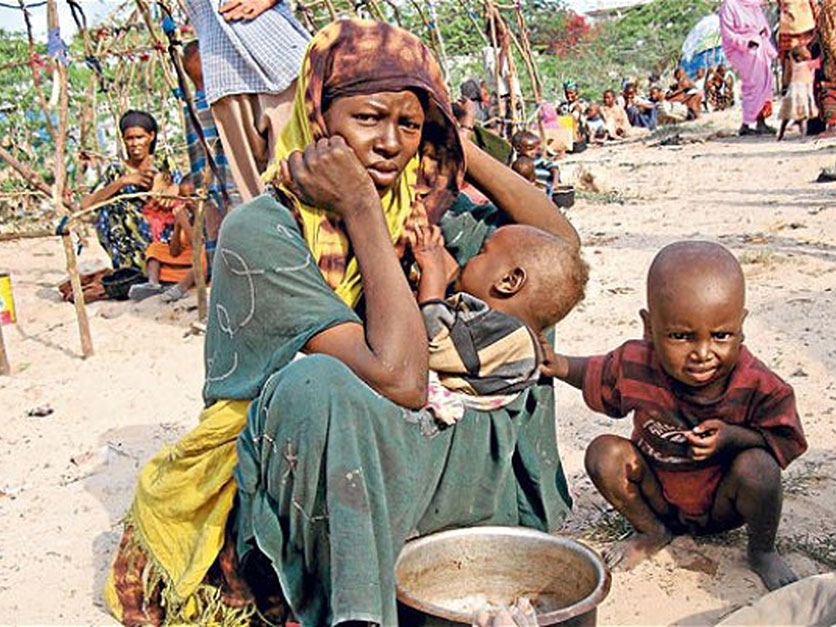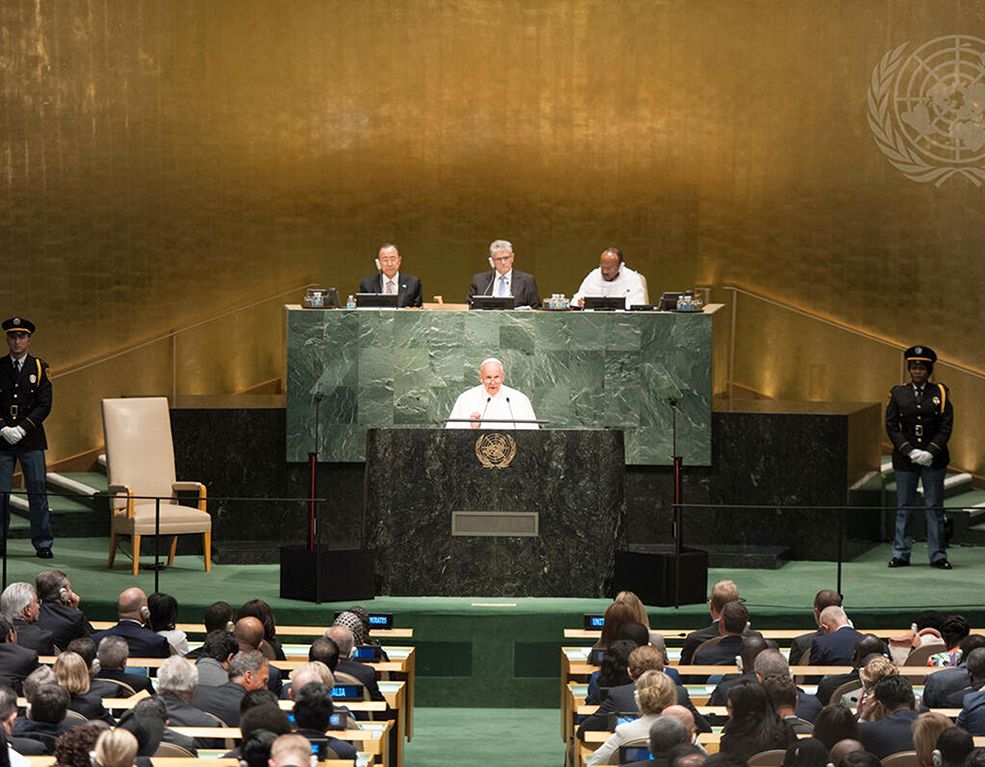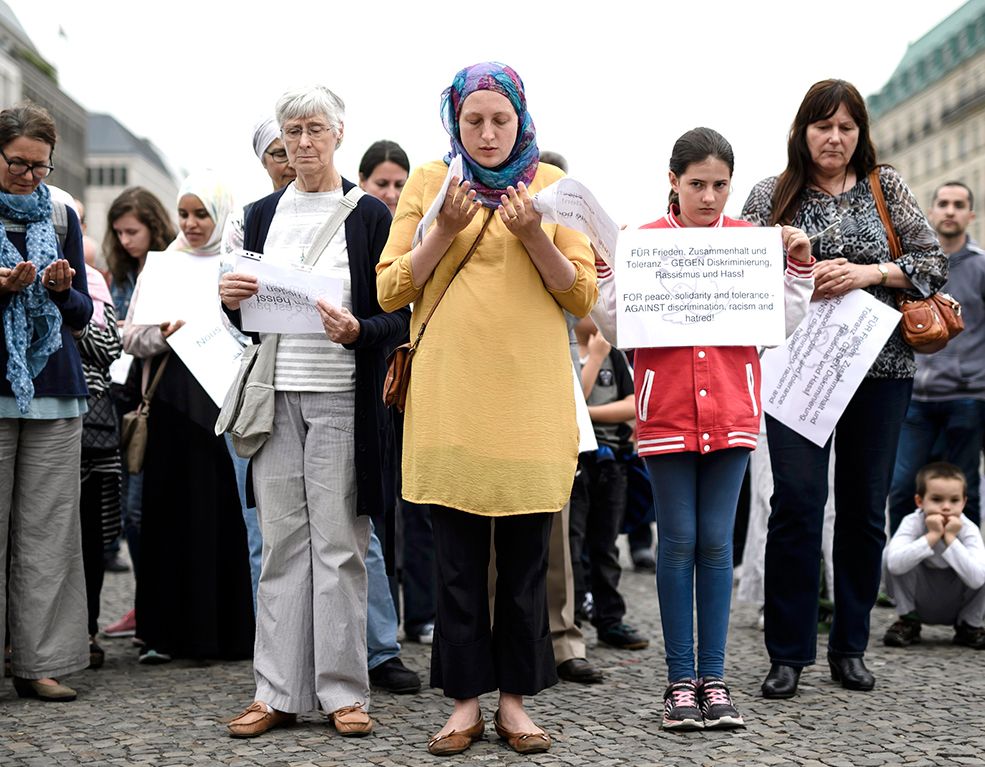Christianity is perceived as promoting the primacy of love, despite its failure often to live up to that reality. The last will and testament of Jesus was that His disciples love one another. And that love was not exclusive, simply loving one’s own. Jesus taught an inclusive love, to include even loving one’s enemies. But Christianity is also perceived as not practicing what it preaches. Consistency of theory and practice is a continual challenge.
In a cartoon strip, “The Wizard of Id,” the court preacher is proclaiming to the congregation. In one frame he says, “Love One Another”; in another, “Love Is the Answer, in another, “Love Makes the World Go Round,” and he continues spouting love slogans. In the last frame, he is standing outside greeting the people, with a fake Cheshire-like cat smile, saying to himself: “This is the part I hate!” It’s easy to talk or preach about love, but hard to practice it.
There was a popular song entitled, “Love Is a Many Splendored Thing.” This is an apt description of love as a multitude of concepts in one word: forgiveness, reconciliation, mercy, justice, nonviolence, compassion. In a scientific analogy, love is the genus, and these components are the species. Each is interconnected and related.
Laws have limitations. They cannot make us love one another. As Martin Luther King put it: “The law cannot make a man love me but it can keep him from lynching me, and I think that’s pretty important.” The primary teaching role of the church is to fulfill the central teaching on love. It should be the mentor to go beyond the limitations of laws, to teach the imperative to love one another through forgiveness, reconciliation, mercy, justice, nonviolence, compassion. Love wills us to overcome our emotions and feelings, and even the limitation of reason. Love is unreasonable as it reaches beyond what is reasonable, yet possible. Why would Jesus urge His disciple to fulfill the command to love if He felt it was outside the realm of human possibility? He demonstrated in His death the seemingly impossible. We might readily grasp the ideal word of love but we fail to follow through real deeds with love. “Love, not in word or talk but in deed and in truth.” That’s the rub!
Gandhi once said: “I like your Christ. I do not like your Christians. They are so unlike your Christ.” In a book by Philip Yancey, he relates an incident between Gandhi, a Hindu, and Reverend Andrews, a Presbyterian missionary in South Africa. “The two suddenly find their way blocked by young thugs. Reverend Andrews takes one look at the menacing gangsters and decides to run for it. Gandhi stops him. ‘Doesn’t the New Testament say, if an enemy strikes you on the right cheek you should offer him the left?’ Andrews mumbles that he thought the phrase was used metaphorically. ‘I’m not so sure,’ Gandhi replies. ‘I suspect He meant you must show courage – be willing to take a blow, several blows, to show you will not strike back nor will you be turned aside. And when you do that, it calls for something in human nature, something that makes his hatred decrease and his respect increase. I think Christ grasped that and I have seen it work.’” Gandhi was imbued with Jesus’ teaching, particularly the Sermon on the Mount. It is said that he wanted to become a Christian and appeared at a church one Sunday morning, only to be told he had to go to a ‘colored’ church!
Gandhi would return to India and, subsequently, take the non-violent teaching of the Sermon on the Mount as the means to effectively rid India of the British colonizers without a war. Centuries before, the American colonies wanted to be free of their British colonizers, yet, unlike Gandhi’s non-violence approach, resorted to a bloody war to expel the British.
Chesterton claimed that Christianity hasn’t failed, rather it hasn’t been tried. Chesterton might well concur with Gandhi that the practice of nonviolence underscores that love is the answer. Non-violence is an aspect of love. Jesus’ dying words, “Father, forgive them for they know not what they do,’ breaks the historical chain whereby people had traditionally sought to take revenge upon the death of another. It is this deed that will make real the words, “Love your enemies.”
Vengeance, retaliation, retribution, payback, etc. were common means of settling scores. “An eye for an eye” was actually an evolution in revenge. It was proportional revenge. Prior to this Mosaic teaching, revenge was disproportionate, taking down as many as possible. Jesus’ teaching evolves even further: “You have heard it said, an eye for an eye…but I say to you, do not resist one who is evil…you have heard it said, hate your enemy but I say to you love your enemy. “ The fifth chapter of Matthew challenges us to act in a new way and this new way is humanly possible.
Vendettas or “blood feuds” have historically been a way of responding in many tribes throughout the world. Blood feuds still continue in some parts of the world. “Vigilante justice” still exists when people, often a mob, will take it upon themselves to swiftly retaliate against an act of violence. Fortunately, “vigilante justice” is on the wane as laws become a vehicle to enforce truer justice. But laws themselves are continually going through an evolution. Not all laws have been proportional to the crime, and hence, laws need to continualy evolve till true justice is attained.
Some would argue that capital punishment is a civilized form of proportional revenge. Overwhelmingly, capital punishment is increasingly banned throughout the world. Of the 195 member states of the UN, 51% abolished capital punishment, 4% allow it for crimes in exceptional circumstances, 25% permit it for ordinary crimes, 20% allow it. This has been a remarkable evolution in fifty years.
THE CHALLENGE TO RESIST REVENGE
When a loved one is killed, emotionally many persons want instinctual revenge. This is understandable. For instincts are emotions, and as indicated in the previous article on “Fear and Religion,” the need to control our emotions and instincts is the challenge, and to let reason act otherwise. Love is an act of the will. It is refreshing to note how many persons overcome their instincts and emotions to make an act of the will not to seek the death of another. Forgiveness is concrete love, the here and now. The media seems to focus more on the horrific acts of murder and often provide less coverage of acts of forgiving love.
In Texas, a 16-year old engineered the death of her mother, father and two younger brothers because her parents had forbidden her to date her boyfriend. The father survived and, subsequently, forgave his daughter and her three accomplices.
The father of a young victim at the Sandy Hook school massacre in Connecticut, despite the murderer being labeled a “monster,” offered the killer’s family his “love and support,” saying “I can’t imagine how hard this experience must be for you.” He, the father of a victim!
A father lost his 20-year old son who was delivering a pizza when a 14-year old thug, part of a gang, shot and killed his son. The father fell into despair, becoming suicidal at one point. Eventually, he approached the killer’s family, offering forgiveness and compassion. He had been an investment banker but his willful act to offer love has changed his work. He has become an international speaker and author of books exploring how the tragedy changed his life to fostering forgiveness. He became an investment banker of love.
Jo Berry was 27 years old when her father, a member of the British Parliament, was killed by an IRA bomb in 1984. Transcending her bitterness and pain, she eventually met the man who murdered her father. They spoke for three hours. The man said to her: “I have never met anyone like you before…I don’t know what to say. I want to hear your pain.” Over a period of time, they developed a healing friendship and now travel the world, speaking in behalf of The Forgiveness Project.
In Northern Ireland, Bernadette Powers, her husband, and their three children were on the way to a Sunday mass. Her husband had worked a late shift as a taxi driver. Bernadette was going to let him sleep but he got up out of bed and said they would go as a unit to the Lord. On their way, a Protestant loyalist appeared, killing her husband, Mickey, and two of her children were wounded. The murderer was never found. She reared her children not to be bitter or vengeful about their father’s murderer. Bernadette speaks to groups on both sides of “the troubles” and how this tragedy brought her out from a personal crucifixion to a public resurrection.
In October 2006, at a one-room schoolhouse of an Amish community in Lancaster, PA, a lone gunman took children hostage, ultimately shooting ten girls and killing five, before he shot himself. The immediate response of the Amish community stunned the world. According to one source, “a grandfather of one of the murdered Amish girls was heard warning some young relatives not to hate the killer, saying, ‘We must not think evil of this man’ … A Roberts family (the murderer’s family) spokesperson said an Amish neighbor comforted the Roberts family hours after the shooting and extended forgiveness to them. Amish community members comforted Robert’s widow, parents, and parents-in-law. One Amish man held Roberts’ sobbing father in his arms, reportedly for as long as an hour, to comfort him. The Amish have also set up a charitable fund for the family of the shooter. About 30 members of the Amish community attended Roberts’ funeral, and Marie Roberts, the widow of the killer, was one of the outsiders invited to the funeral of one of the victims. Marie Roberts wrote an open letter to her Amish neighbors thanking them for their forgiveness, grace and mercy. She wrote: “Your love for our family has helped to provide the healing we so desperately need…Gifts you’ve given have touched our hearts in a way no words can describe. Your compassion has reached beyond our family, beyond our community, and is changing our world, for this we sincerely thank you.”
Several important points ought to be noted in this event. The immediacy of the afflicted Amish Christian community to respond to the widow and family of the killer is astounding. Many victims have to first work through their emotions before they can begin to speak and act toward forgiveness. For some, it can take years, if ever. The Amish community was in the throes of their own bewilderment at this gruesome tragedy which struck their small-knit community. Yet, they dropped everything instantly and embraced the family of the agent of their suffering before the world. Their immediate response, transcending straightway the limitations of reason, broke the sound barrier of reason. Secondly, the admonition of the elders to young members, “we must not think evil of this man,” upends the normal reaction of calling such persons monsters, incarnate evil, etc., and demanding immediately their death. Thirdly, to set up a charitable fund for the family of the shooter is walking the extra mile as Jesus admonished. It is hard to fathom their mind-boggling Christian response. It is understandable, though, when one realizes that the central moral teaching that is the focus of their community life is the Sermon on the Mount which spells out the new commandment of love in specifics.
THE SOUTH AFRICAN EXAMPLE
Fortunately, these examples are legion. One can google the subject and retrieve countless accounts of people not seeking revenge but extending a heart of reconciliation. The seeds of the Kingdom teaching Jesus scattered have fallen on fertile ground – persons and groups, even governments are practicing and implementing the incarnation of love at many levels.
In South Africa, the oppressive regime of apartheid held sway whereby about 20% of the white population unjustly dominated the majority colored population with punitive and restrictive laws and regulations. Nelson Mandela, who fought against the system, was imprisoned for twenty-seven years. (His capacity to forgive his jailers and the white oppressors had a tremendous impact, at national and international levels, as was shown during the week of celebrations and homage that preceded the burial of the country’s first democratic President, last December; he was 95 years old when he died, and was considered the most inspirational global leader of the last decades. Ed. Note).
When apartheid collapsed, the tension was ripe for revenge and retaliation. Cooler heads prevailed and established a Truth and Reconciliation Commission to mediate the injustices among the population, averting a huge blood bath and victor’s justice. The Commission heard from victims of both sides of the long dark days of apartheid. The minimum demand of love is justice. Love cannot gloss over injustice but seeks through justice to effect reconciliation between opposites. This was the success of the Commission.
A striking example of reconciliation came from an unassuming black woman there. “The Commission brought an elderly black woman face to face with the white man, Mr. Van de Broek, who had confessed to the savage torture and murder of her son and husband a few years earlier: The old woman had been made to witness her husband’s death; the last words he spoke were: ‘Father, forgive them.’ One of the members of the Commission turned to her and asked, ‘How do you believe justice should be done to this man who has inflicted such suffering on you and so brutally destroyed your family?’ The old woman replied, ‘I want three things. I want first to be taken to the place where my husband’s body was burned so that I can gather up the dust and give his remains a decent burial.’ She stopped, collected herself, and then went on. ‘My husband and son were my only family. I want, secondly, therefore, for Mr. Van de Broek to become my son. I would like for him to come twice a month to the ghetto and spend a day with me. And finally, I want a third thing. I would like Mr. Van de Broek to know that I offer him my forgiveness, because Jesus Christ died to forgive. This was also the wish of my husband. And so, I would kindly ask someone to come to my side and lead me across the courtroom so that I can take Mr. Van de Broek in my arms, embrace him, and let him know that he is truly forgiven.’ The assistants came to help the old black woman across the room. Mr. Van de Broek, overwhelmed by what he had just heard, fainted. And as he did, those in the courtroom – friends, neighbors, all victims of decades of oppression and injustice – began to sing ‘Amazing Grace.’”
Approximately 50 versions of the Truth and Justice Commission have sprouted throughout the planet in recent years as a new and more effective way of dealing with injustice. This is truly evolutionary in human consciousness. Who knows where this trajectory will lead the human community? We are on a roll despite the reality that much injustice still exists. The early harvest of love has commenced. We are bringing in the sheaves. Teilhard de Chardin had prophesied: “Someday, after mastering the winds, waves, the tides, and gravity, we shall harvest for God the energies of love, and then, for a second time in the history of the world, man will have discovered fire.” The flame is increasing.
The new wine of the Kingdom of God’s teaching of Jesus is the primacy of love. Love, mercy, compassion, justice, etc. were already part of the religious tradition of Jesus. He highlighted and singularly made love the primacy in the Kingdom’s teaching, summed up in His last will and testament, “love one another.” He goes out and is nailed to the cross, saying: “Father, forgive them,’ following, in deed, His word.
LOVE TRUMPS SELF-INTEREST
We are driven by self-interest. Even though we try to be subtle and seek not to be obvious, our ego is relentless in asserting one’s self and satisfaction. We tend to use others for our ends. Often, we do this subconsciously, unaware of how manipulative we are. Is it a reflection of our insecurity?
Altruism is another word for selflessness. Many doubt whether true altruism is possible. Jesus spoke of dying to one’s self. Psychologists might view this as letting go of one’s ego. Insecurity blocks letting go of the self. The practice of love, with its many splendored parts (forgiveness, compassion, mercy, justice, non-violence), can slowly lead us to selflessness – when we grow in consciousness of desiring the well-being of others as equally well as the self. The paradox of Jesus is that we find our true self in losing, letting go of the self. The practice of acts of love toward others, in time, enables us to purify our actions, whether they are simply for the self or to be truly in solidarity with others.
St. Paul, in his hymn to love, emphasizes that love is other-oriented,” it does not seek its own interest.” This is a challenge to a culture in which satisfying the self is the priority, as if this were not always true but, perhaps, more empathic today in a media-driven society. Jesus is the model who laid down His life for others. There are endless demands to lay down our lives for others, even without the shedding of blood. As the Letter to the Hebrews reminds us, “Let us keep our eyes fixed on Jesus.” Reflecting on His ways, as our primary meditation, is the grace to let go of self.
St. John of the Cross said that, in the evening of life, we shall be judged on love, reiterating what St. Paul held that despite faith and hope, the greatest of these three is love. If Christianity is to realize its perception as promoting the primacy of love, then it needs to daily challenge disciples to love others not simply for self-interest but for the well-being of the other. A poet wrote: “Though I cannot be loved, let me love.” It seems to underscore not to expect others to love us. We must take the initiative to love others first. This echoes the Letter of John, “This is love; not that we loved God, but that He first loved us.” God shows us that we too must first love others. When we achieve this stage of the Christian life, we have graduated. We need first to apply that love is the answer before expecting others to do the same.





